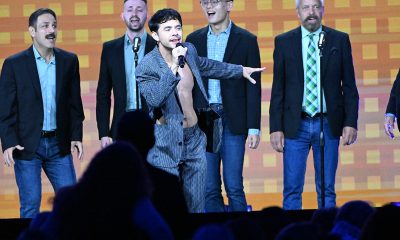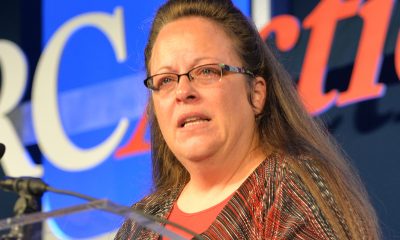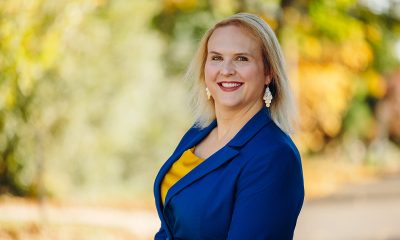Arts & Entertainment
Message in the music
Gay Men’s Chorus reaching out to region’s queer youth with concert, program
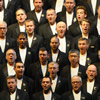
Gay Men’s Chorus of Washington
‘The Kids are All Right’
With guests Candace Gingrich-Jones and Dreams of Hope
Saturday at 8 p.m.
Tickets: $20-$50
G.W. Lisner Auditorium
730 21st Street, N.W.
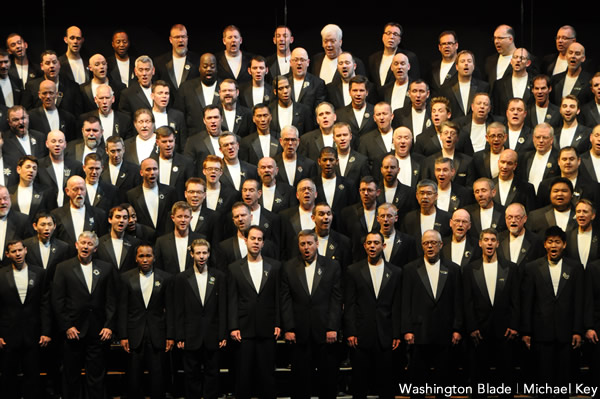
The Gay Men’s Chorus of Washington has a one-off youth-themed performance scheduled for this weekend. (Blade file photo by Michael Key)
As a veteran high school music teacher and counselor, Jeff Buhrman saw first-hand the need for affirmation and support for LGBT youth. When he became artistic director of the Gay Men’s Chorus of Washington, he made it a priority to start a youth outreach program.
Though the Chorus’s GenOUT program has been in existence since 2001 offering free concert tickets to local LGBT youth, the Chorus has ramped up its efforts in the “It Gets Better” era. Saturday’s “The Kids are All Right” concert, the Chorus’s second of the current season, is especially created to dovetail with the program. It’s a busy time for the Chorus — last weekend its Rock Creek Singers ensemble performed with the Camp Rehoboth Chorus. Its all-male production of “The Rocky Horror Show” debuts in mid-March.
“(Saturday’s concert) is designed especially to serve the mission of our GenOUT program,” Buhrman says. “We are specifically reaching out to youth for ‘The Kids Are All Right.’ We’re sharing our stories we think they will relate to … the support of a mother who helps us get through, having a safe place in school like the high school music room or the theater room so we don’t have to go into the scary cafeteria during lunch … we’re using video, songs and narration to share our stories about the times we felt different growing up and exploring how it gets better.”
The Chorus will be joined by Candace Gingrich-Jones (Newt’s lesbian half-sister), who’ll provide narration for a musical dramatization of the story “Oliver Button is a Sissy,” and Dreams of Hope, a Pittsburgh-based teen performance ensemble whose 12 guests will use self-penned material such as poetry, song and dance to, as Buhrman puts it, “share their feelings about being teenagers in today’s world.”
The Chorus will pull with its usual eclectic reaches — everything from Broadway to country — to perform songs that flesh out the queer-affirming theme (the title is merely borrowed from the 2010 film — it’s not a musical telling of that story).
Buhrman knew of the Dreams of Hope chorus through an association of gay choruses of which the Washington Chorus is also a member. Dreams will perform a 25-minute segment then join the GMCW for the finale.
“It’s a joy when we are able to actually share the stage with another group,” Buhrman says. “It’ll be fun working with them.”
Jay Garvey, a 27-year-old GMCW baritone who works as a co-facilitator of the GenOUT program, agrees.
“We’re gonna see some beautiful stories shining through and that’s what the Chorus does best,” he says. “There are these little moments in life that every LGBT person can understand and relate to, so we hope audiences will find themselves in these narratives, especially youth who are going through it now.”
But while the intentions are obviously great, does quality suffer when so much of the material is new, autobiographical and unproven? Buhrman, who has solid classical training, says it’s not an issue.
“If you had been at our rehearsal the other night, you wouldn’t ask that question,” he says. “Music, and good music, is at the heart of everything we do. You’ll hear a range of styles, expansively beautiful melodies, great lyrics — we can always find music that will correspond to our experiences as LGBT people and if we can’t find something ourselves, we either commission it … or find something and have one of our people arrange it. … It’s why it sometimes takes us one-to-two years to plan a show. We want to find exactly the right music to speak at that exact moment.”
The GenOUT program is run by GMCW staff such as Taunee Grant, its director of marketing and communications, and co-facilitators Garvey, Nic Baker and Richard Bennett, Chorus members who volunteer their time to the program. About 94 schools and organizations in the region attend Chorus shows through the program which gives free tickets to about 300 LGBT students each season. “Pink Nutcracker,” the Chorus’s well-received 2011 holiday show, brought 175 free tickets through the GenOUT program. “Red & Greene,” the 2012 holiday show, found 225 guests. Members hope to continue adding tickets each year.
The program also features “hubs” in the Lisner lobby at each GMCW concert where queer youth can meet up before and after the shows. And it’s not just for high school students — the Chorus is in the process of getting a college internship program started as well.
Dining
Spark Social House to start serving alcohol
D.C.’s only ‘LGBTQ alcohol-free bar’ changes course

Washington, D.C.’s only LGBTQ alcohol-free bar will lose that distinction in December: Spark Social House, located at the corner of 14th and U streets, N.W., will no longer serve only booze-free drinks.
Spark Social, as it is commonly known, received significant media attention and accolades when it debuted in March. Opening in the beating heart of the LGBTQ community’s social scene, its doors stand next to other popular nightlife establishments, including Crush, Bunker, District Eagle, and Revolt (which opened after Spark Social). All of those other bars serve alcohol.
Spark maintained a separate identity, creating a “third space” for sober guests or those who did not wish to spend their evening in an alcohol-forward space. Owner Nick Tsusaki, a former bartender, opened Spark Social to fill a gap he saw in queer nightlife establishments that centered drinking. Instead, Spark was intended to be a convening bar. By day, it has served coffee and tea as a café for remote workers, meetings, and catch-ups. In the evening, the bar hosts a wide array of events, with DJs, dancing, drag queens, speakers, open mic nights, and stand-up comedy, movie showings, among other events.
At the bar, it served cans, bottles, and craft cocktails, as well as “wellness drinks” or functional beverages like mushroom elixirs, Kava, and kombucha. All of these are currently non-alcoholic. Currently, in November, the bar is serving seasonal morning drinks like toasted almond and French Toast lattes, plus non-alcoholic cocktails like a “Hottie Hottie” with non-alcoholic spiced rum, lemon, and maple butter; plus a maple espresso “martini” without liquor, which includes mushroom tinctures.
Spark Social, even in its short time in existence, won “Best DC Coffee Shop” in the 2025 Washington Blade annual poll.
Nevertheless, in early November, the Spark owners and leadership team hosted a town hall to share updates and hear directly from the community about the next chapter for Spark.
According to the bar’s Instagram posts, the town hall reviewed the intent and purpose behind the bar: to create a queer third space where people can connect, create, and feel at home.”
“After eight months as a fully non-alcoholic bar, we’ve learned that sobriety exists on a spectrum and inclusion means offering choice.”
To that end, in December, Spark’s offerings will evolve. Instead of serving only drinks without alcohol, there will be a new “1 for 1” menu in which every cocktail comes in two versions: booze and boozeless. While alcohol will be served, the bar owners insist that they remain committed to maintaining its welcoming and relaxed vibe.
In a separate post, Spark wrote that “Although this was not our intent when we started the business, after 6 months of operations we’ve made the difficult decision to change our business model so that we can keep providing this space to the community.”
They acknowledged that this pivot might have “come as a surprise,” and offered to received feedback to ensure that the bar’s initial objective of being a unique space could continue.
Alcohol will only be served at the bar in the evenings during the week, and all day during the weekend.
Tsusaki spoke to the Blade about the changes and offered these statements:
“When we opened, the goal was to create a queer third space where people could spark a connection, spark creativity, spark an idea — especially for folks looking for an alternative to the typical drinking environment,” Tsusaki said. “From day one, Spark has been about the vibe — a place where you can just exist, feel at home, and be surrounded by community without pressure or pretense. After eight months as a fully non-alcoholic space, we learned a lot about what people actually want from spaces like this. Most folks exist somewhere on a spectrum of sobriety — some are fully sober, some are sober-curious, some drink occasionally. We realized that if our mission is to bring people together, inclusion has to mean options for everyone.
“We had to face the financial reality of running a small independent space in D.C. The city has been hit hard — especially with reduced spending and recent federal layoffs — and it’s made things tough for hospitality businesses like ours. Adding alcohol helps make Spark sustainable so we can keep doing what we do: building community, creating jobs, and keeping this space alive for the long haul.
“We’re using this moment to make the space even better — enclosing the back patio so it’s usable year-round, upgrading our DJ booth and sound system, and making a few design tweaks that better reflect the energy and creativity Spark has always had.”
Photos
PHOTOS: Miss Gay Mid-Atlantic America
Victoria Bohmore crowned in regional pageant held at Freddie’s Beach Bar
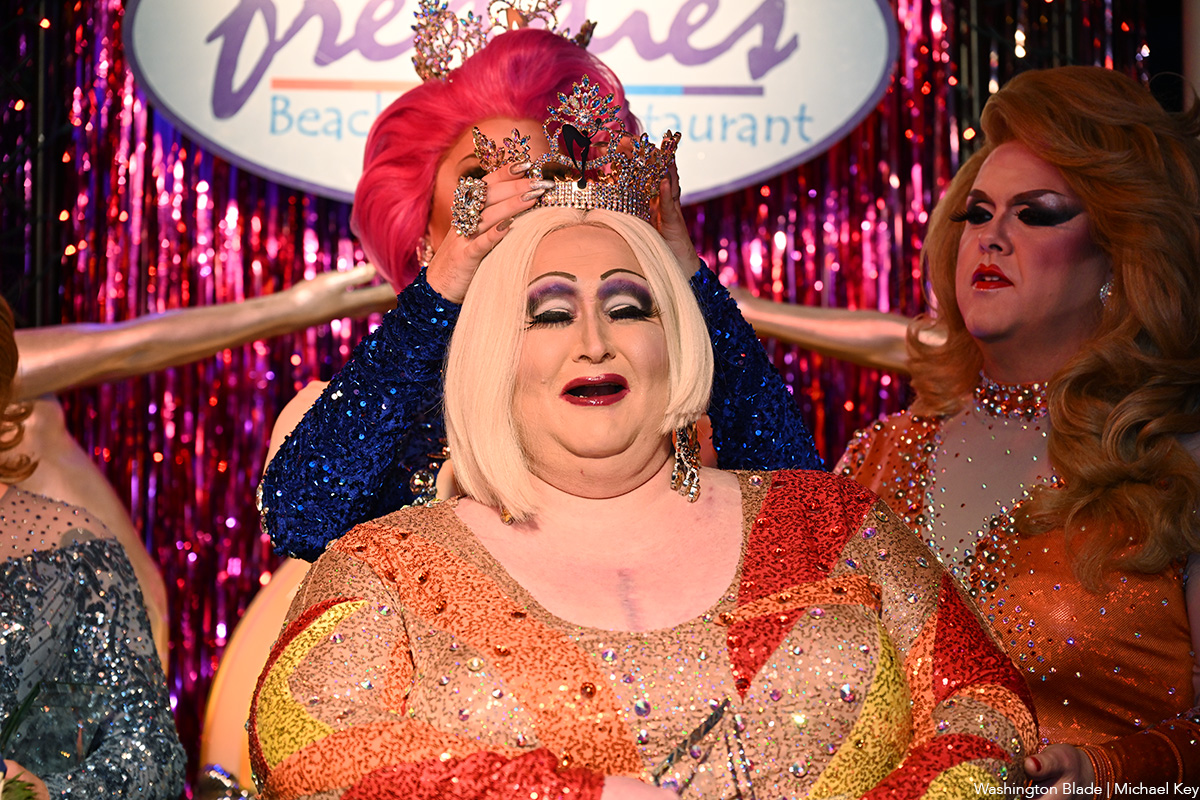
The 2025 Miss Gay Mid-Atlantic America Pageant was held at Freddie’s Beach Bar in Arlington, Va. on Friday, Nov. 7. Victoria Bohmore was crowned the winner, with Lady Lords named first alternate. Bohmore and Lords both qualify to compete against the winners of the Miss Gay Maryland America Pageant as well as other state and regional title holders from across the nation at the Miss Gay America Pageant in January.
(Washington Blade photos by Michael Key)
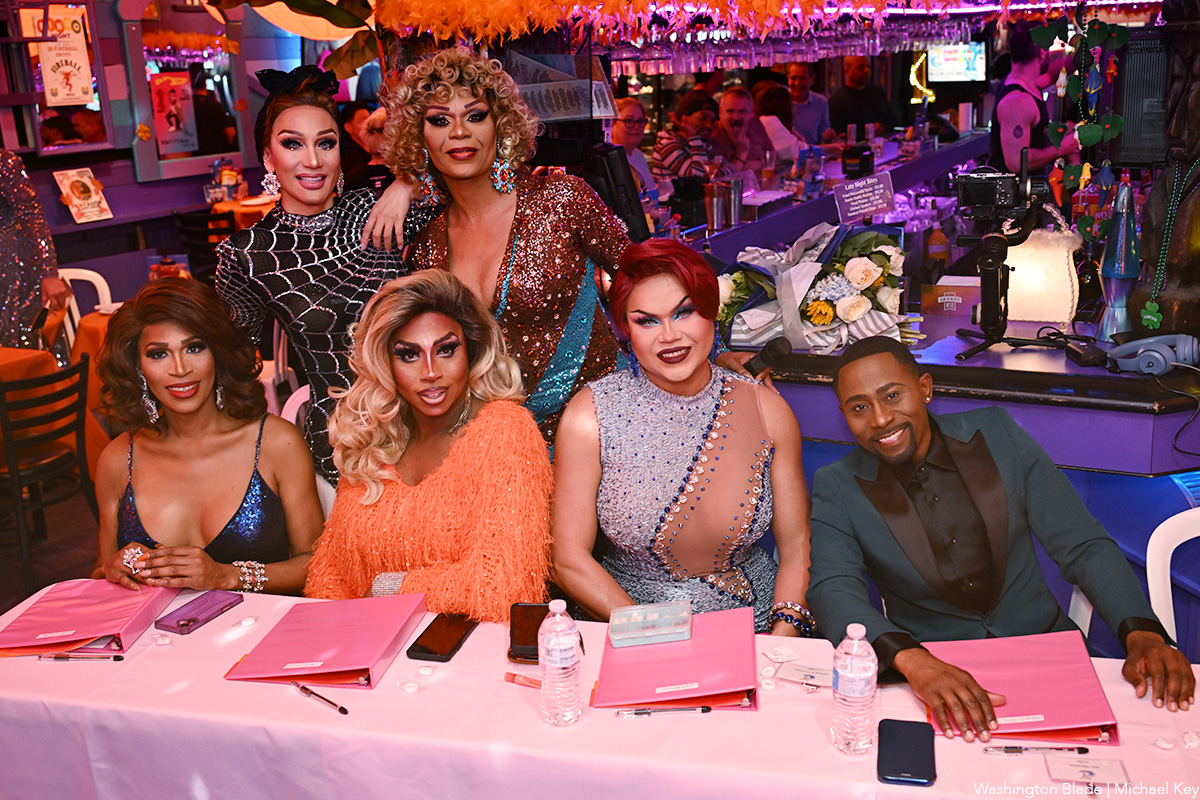

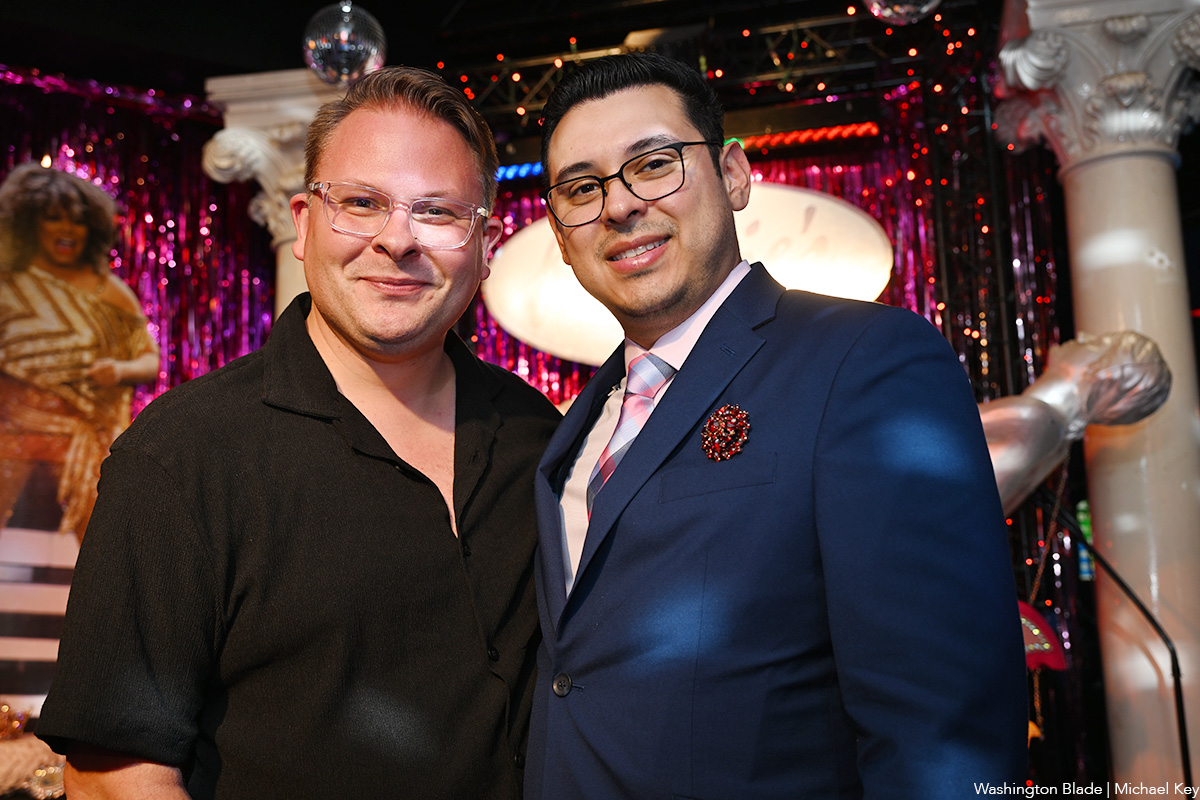
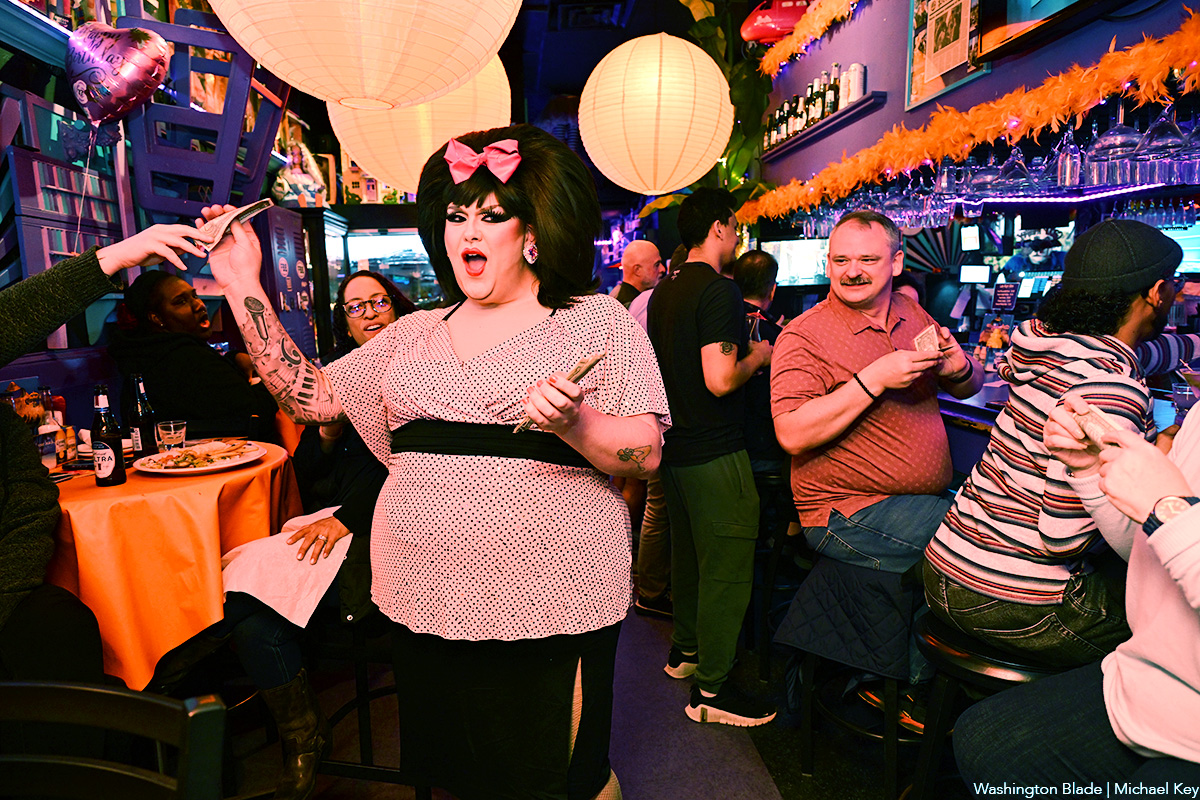


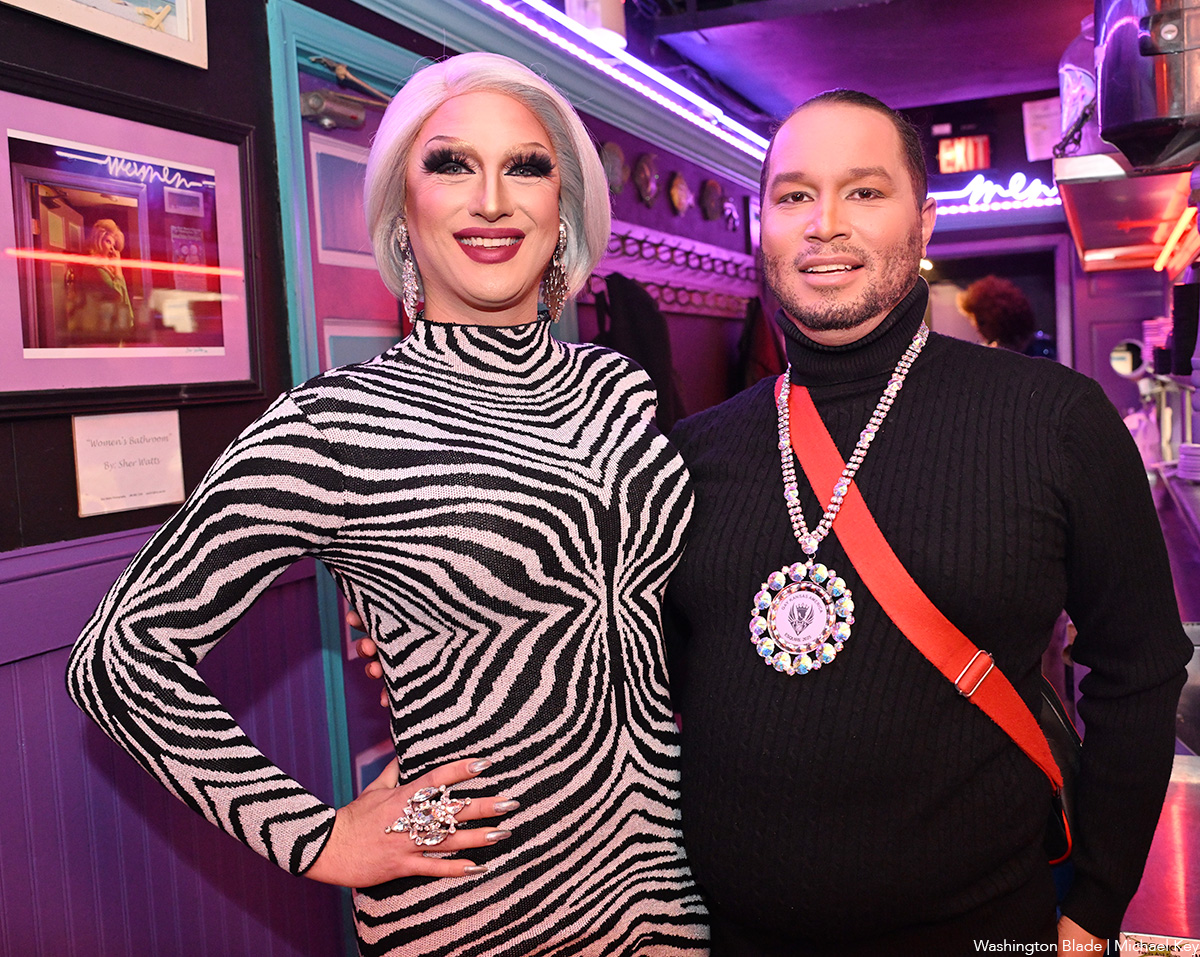



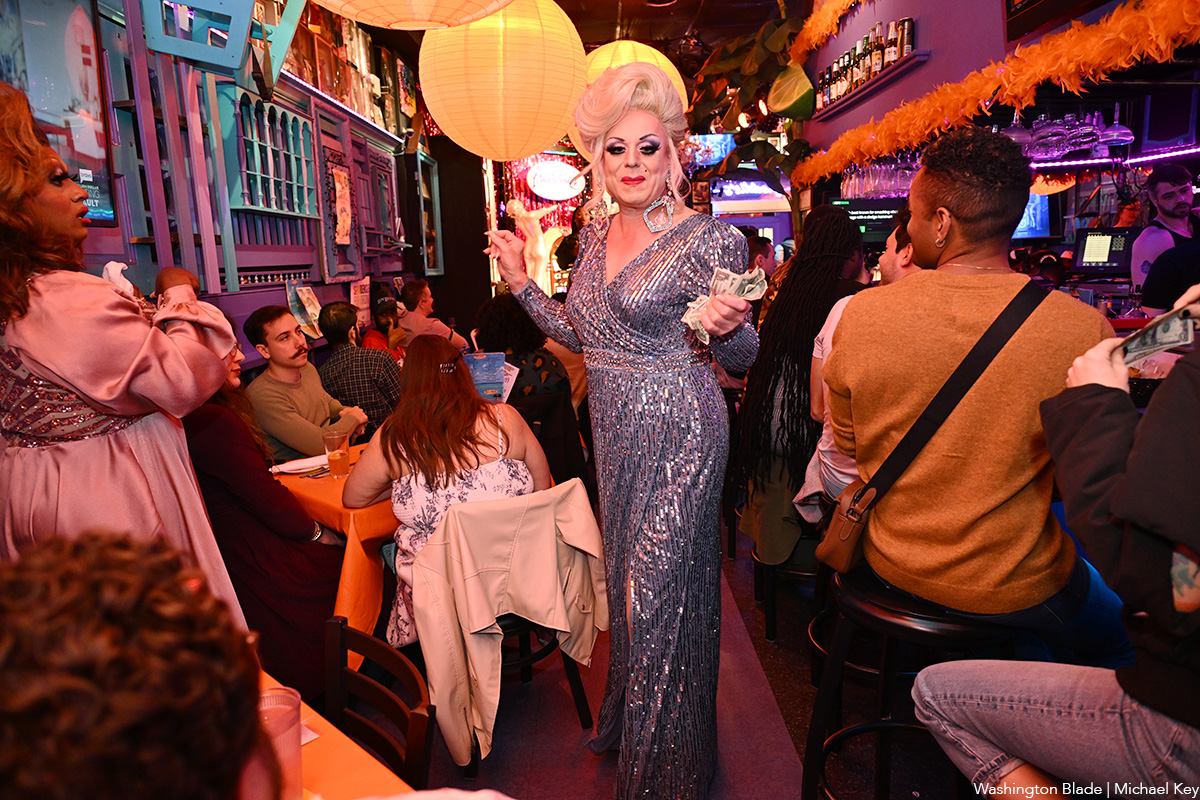
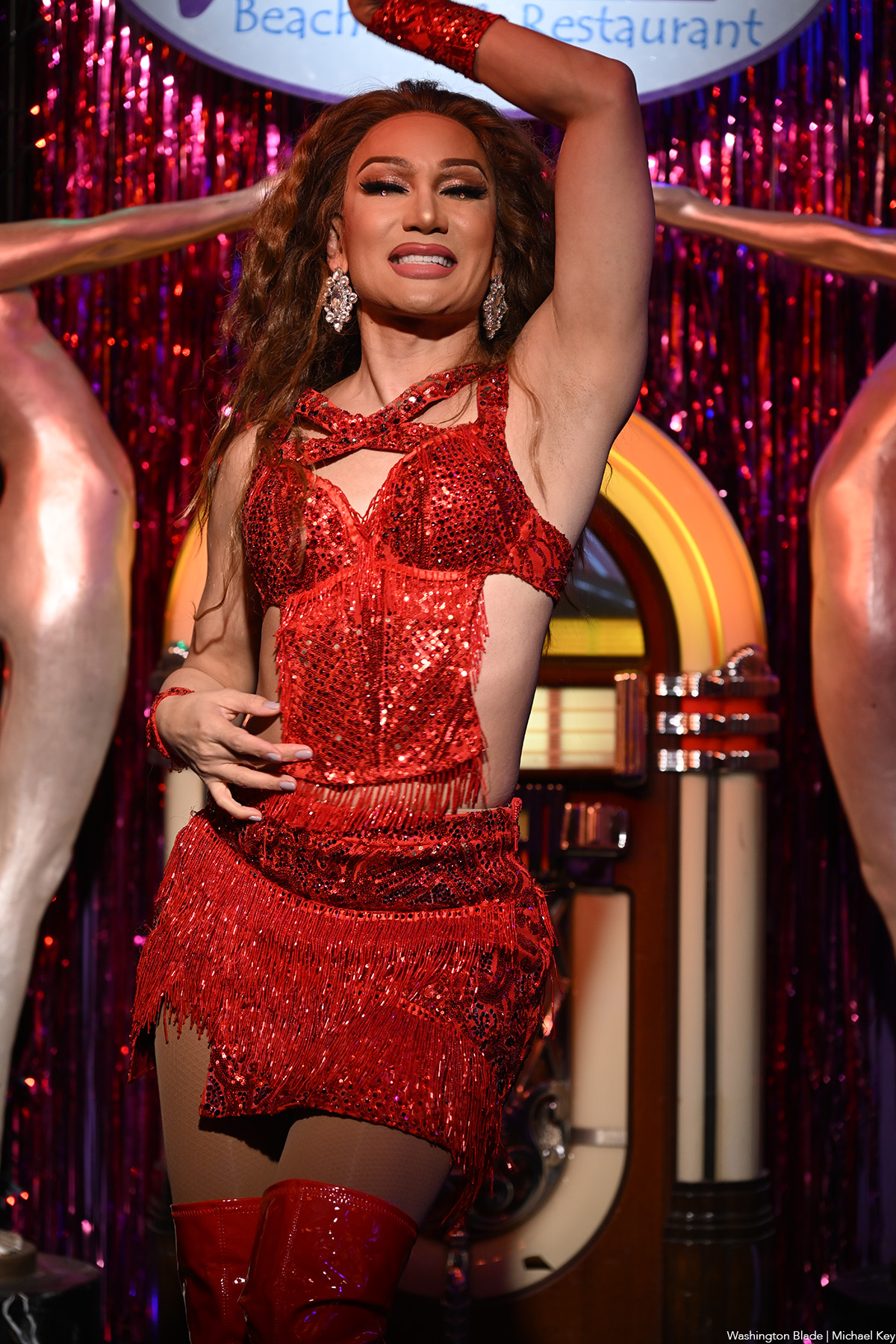


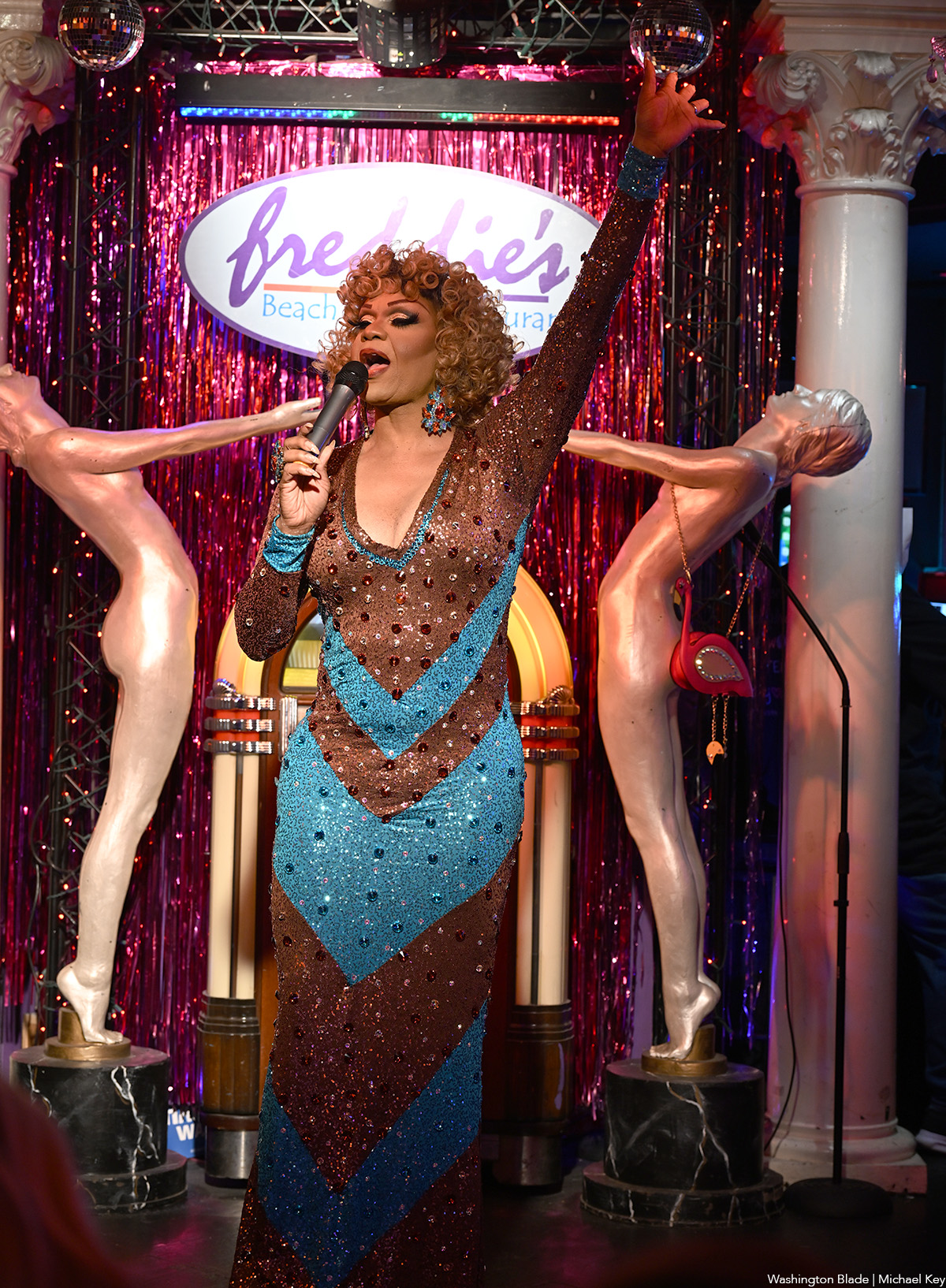
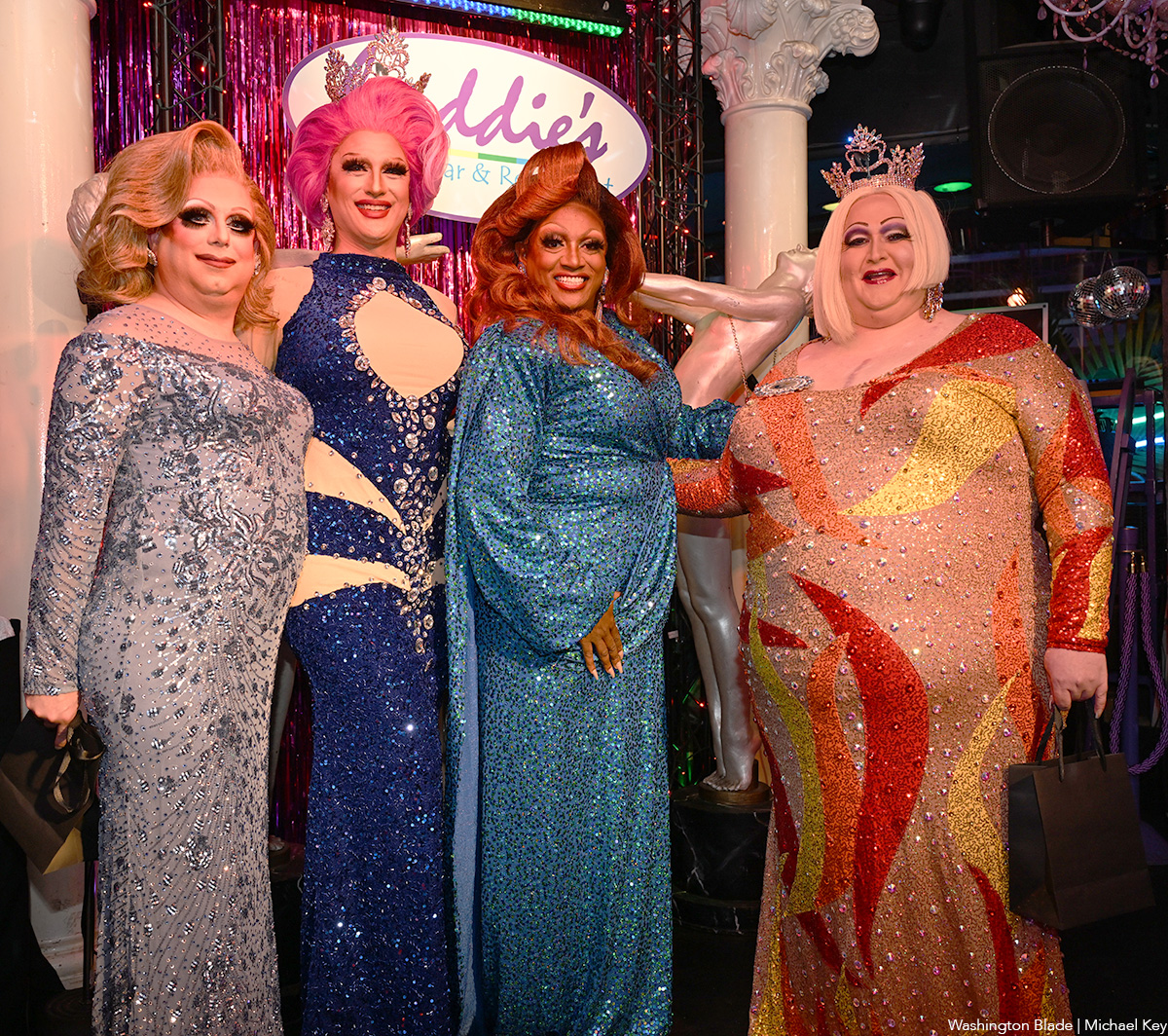
Books
A history of lesbian workarounds to build family
Fighting for the right to have and raise kids
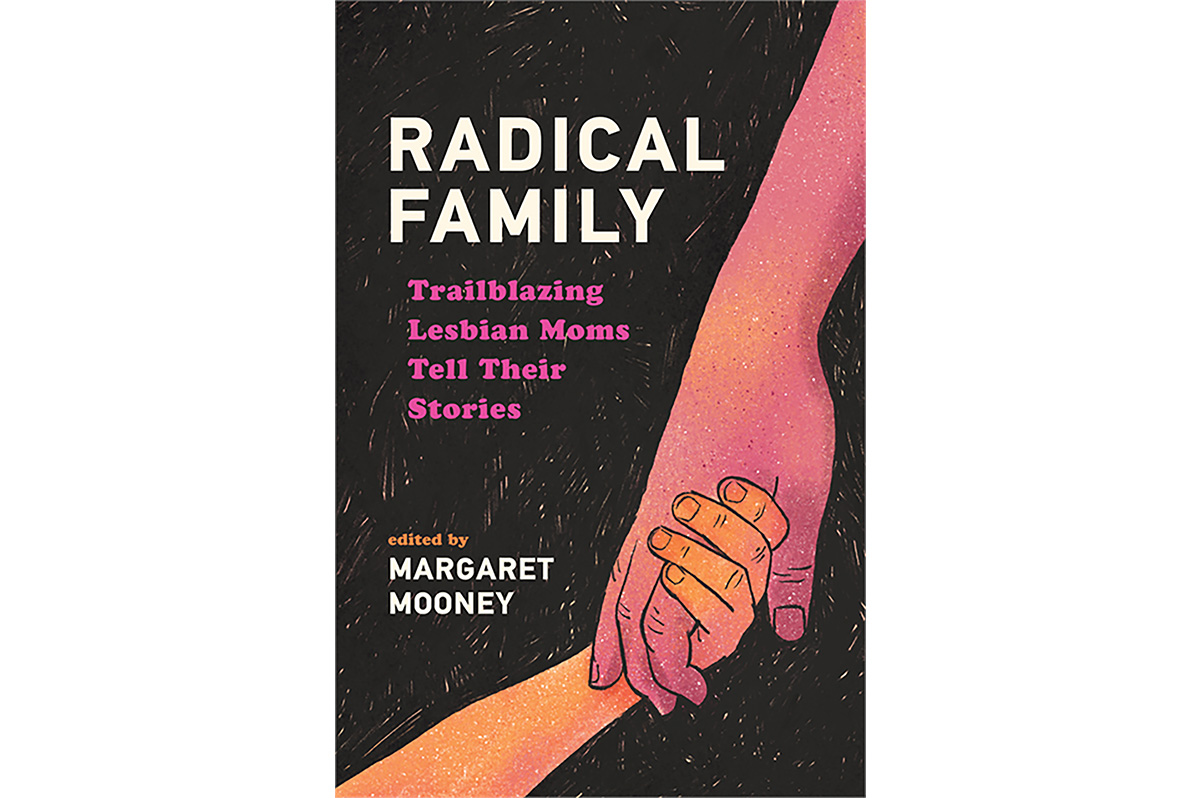
‘Radical Family: Trailblazing Lesbian Moms Tell Their Stories’
Edited by Margaret Mooney
c.2025, Wisconsin Historical Society Press
$20/150 pages
You don’t have a white picket fence with an adorable gate.
The other parts of the American Dream – the house in the suburbs, a minivan, and a big backyard – may also be beyond your reach. You’ve never wanted the joyous husband-wife union, but the two-point-five kids? Yeah, maybe that’s possible. As in the new book “Radical Family,” edited by Margaret Mooney, it’s surely more so than it was in the past.

Once upon a time, if a lesbian wanted to raise a family, she had two basic options: pregnancy or adoption. That is, says Mooney, if she was willing to buck a hetero-centric society that said the former was “selfish, unnatural and radical” and the latter was often just simply not possible or even legal.
Undaunted, and very much wanting kids, many lesbians ignored the rules. They built “chains” of women who handed off sperm from donor to doctor to potential mother. They demanded that fertility clinics allow single women as customers. They wrote pamphlets and publications aimed to help others become pregnant by themselves or with partners. They carefully sought lesbian-friendly obstetricians and nurses.
Over time, lesbians who wanted kids were “emboldened by the feminist movement and the gay and lesbian rights movement” and did what they had to do, omitted facts when needed, traveled abroad when they could, and found workarounds to build a family.
This book tells nine stories of everyday lesbians who succeeded.
Denise Matyka and Margaret McMurray went to Russia to adopt. Martha Dixon Popp and Alix Olson raised their family, in part and for awhile in conjunction with Popp’s husband. Gail Hirn learned from an agriculture publication how to inseminate herself. MC Reisdorf literally stood on her head to get pregnant. Mooney says that, like most lesbian parents then, she became a mother “without any safety nets…”
Such “struggles likely will feel familiar as you read about [the] desire to become parents…” says Mooney. “In short, these families are ordinary and extraordinary all at once.”
In her introduction, editor Margaret Mooney points out that the stories in this book generally take place in the latter part of the last century, but that their relevance is in the struggles that could happen tomorrow. There’s urgency in those words, absolutely, and they’re tinged with fear, but don’t let them keep you from “Radical Family.”
What you’ll see inside these nine tales is mostly happy, mostly triumphant – and mostly Wisconsin-centric, though the variety in dream-fulfillment is wide enough that the book is appropriate anywhere. The determination leaps out of the pages here, and the storytellers don’t hide their struggles, not with former partners, bureaucracy, or with roadblocks. Reading this book is like attending a conference and hearing attendees tell their tales. Bonus: photos and advice for any lesbian thinking of parenthood, single or partnered.
If you’re in search of positive stories from lesbian mothers and the wall-busting they did, or if you’ve lived the same tales, this slim book is a joy to read. For you, “Radical Family” may open some gates.
The Blade may receive commissions from qualifying purchases made via this post.
-

 U.S. Supreme Court2 days ago
U.S. Supreme Court2 days agoSupreme Court rejects Kim Davis’s effort to overturn landmark marriage ruling
-

 Pennsylvania5 days ago
Pennsylvania5 days agoErica Deuso elected as Pa.’s first openly transgender mayor
-

 District of Columbia2 days ago
District of Columbia2 days agoCapital Pride files anti-stalking complaint against local LGBTQ activist
-

 Movies4 days ago
Movies4 days agoSuperb direction, performances create a ‘Day’ to remember



